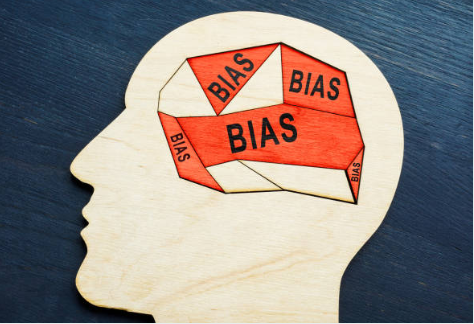Apply the Optimistic Bias to your Life
The optimistic bias refers to the tendency to think that you will experience more positive events in your life than you actually will. It is also known as unrealistic optimism and comparative optimism. In addition to the physical symptoms of this tendency, it also has psychological consequences. Learn more about optimistic bias below. Then, you can apply the theory to your life!

Selfpause Affirmation App
Download the app to get 1,000’s of affirmation meditations and everything you need to write, record and listen to your own.
Optimism bias

The optimistic bias is a tendency to overestimate the likelihood of positive events and underestimate the likelihood of negative ones. The bias is widespread and is found in both animals and humans. Optimism bias is more pronounced in situations when an individual feels that they have a greater control over the outcome. For example, men who feel that they are more in control of HIV transmission are more likely to evaluate the risks of contracting the disease positively.
While group methods do measure optimistic bias, these are not effective in identifying individual biased individuals. For example, women who believe that their risk of breast cancer is below average may be accurately assessing their own risk, but their beliefs may be unrealistic. In such cases, it is necessary to identify the biased individuals to assess the potential relationship between their beliefs and other factors.
The optimism bias is a learned behavior that makes people think that everything is going to be fine and that things will never go wrong. This type of thinking may lead to unrealistic expectations and the inability to evaluate the potential consequences of actions. While there are no known causes for this bias, there are several risk factors that can lead to it.
In recent research, neuroimaging studies have found that individuals with high levels of optimism are more likely to experience positive events than those with low levels. While this bias is present in most individuals, it may be absent in some people with mental illnesses. Further studies are needed to confirm these findings in patients. The occipital regions play a significant role in optimist thinking.
Another study looked at the association between optimistic bias and risk perceptions. In the case of skin cancer, a study conducted by the Swedish Cancer Society found that optimism bias was related to an individual’s beliefs about risk. People with a low level of optimistic bias were less likely to believe they were at risk for developing skin cancer. Optimistic bias was also positively associated with an individual’s perceptions of their ability to shield themselves from the sun’s rays.
Another study found that individuals who are optimistically biased tend to underestimate the risks of diseases. They also tend to be less attentive to new health information. Consequently, they are less likely to take precautionary measures than those who are more risk-averse. People who are optimistically biased also tend to be more likely to engage in risky behavior such as unprotected sexual intercourse.
Significance of optimism bias

The significance of optimism bias has been studied in a variety of situations. Though most research on the phenomenon focuses on health issues, it has been observed in samples of different backgrounds. It has been found in adolescents, community residents, smokers, and prostitutes. The optimistic bias has been proven to affect people’s decision-making based on the odds of experiencing a specific event.
The origin of optimism bias has not been identified but it may stem from motivational factors or from the need to protect self-esteem. Regardless of the cause, people engage in various strategies to maintain their optimistic beliefs even when they are challenged. This bias is difficult to change and is highly resistant to the process of learning new information. The bias is also strongly influenced by emotion. Those who feel angry, fearful, or sad are more likely to express optimism than those who are in a neutral or depressive state.
Researchers used a psychometric test to test the influence of the optimism bias on decision-making. They asked participants to answer a series of questions about the likelihood of a specific future event. One task asked participants to make predictions about positive events and negative events in the future. Participants were randomly presented with 69 positive event phrases and 71 negative event phrases, and judged how likely they thought these events were to occur.
People who experience optimism bias tend to have unrealistic expectations and overestimate the probability of positive events. This can be detrimental to their decisions, such as spending more than they have. As a result, they may lose health, money, and even relationships. However, this bias does have benefits. It is present in most people and may even be useful for our survival.
Entrepreneurs often exhibit this bias. Entrepreneurs often choose to start their own businesses, which is a very forward-looking action with many unknowns. Entrepreneurs are more likely to be optimistic when they think they are in control of their own destiny.
Symptoms of optimism bias

While a high level of optimism can have psychological benefits in the short run, it may be unhealthy in other circumstances. People who are overly optimistic may not be as effective at evaluating potentially hazardous situations as they might otherwise be. The optimistic bias is a biological trait with evolutionary origins, but it is not optimal in every situation.
Overly optimistic people are more likely to overestimate the likelihood of their success. As a result, they often under-plan for a difficult event or risk losing their assets, health, and relationships. However, a strong optimism bias can also help you cope with your daily life, helping you handle everyday problems. However, it is important to note that people with major depressive disorders do not show any signs of optimism bias. In addition, these people are more likely to overestimate negative events and underestimate positive ones.
This condition can affect people of any age, gender, or race. In a 1980 study by Rutgers University, undergraduate students were given a list of 42 events. Some were positive, such as living to be 80, and others were negative. The participants had to rate how likely they thought each event would be. The participants were asked to compare their responses with those of their classmates.
Optimism bias is a learned behavior. People who are overly optimistic tend to exaggerate positive events and ignore the negative ones. This is detrimental, because it can prevent people from realizing the downsides of a situation. Fortunately, optimism bias is curable. People can overcome the condition by improving their self-esteem, rational thinking, and reference class forecasting.
The optimistic bias can cause huge losses in financial decision-making. It can also lead to rigidity, poor analysis, and flights of fancy. Regardless of the cause, a strong optimism bias can make people careless and make them susceptible to financial scams. You should avoid these types of people, as they often exhibit a higher level of risk than those who are more logical and rational.
The optimistic bias is often a result of cognitive factors, such as how people compare their own risk and those of their peers. In addition, individuals who are prone to a depression tend to overestimate the likelihood of positive events while underestimating the likelihood of bad ones. Therefore, it is important to reduce the level of egocentrism in order to reduce optimism.
Psychological consequences of optimism bias

Psychologists have been worried about the psychological consequences of optimism bias. It can lead us to make inaccurate health judgments. If we’re overly optimistic, we may believe that a disease like COVID is unlikely to affect us. Then, we may think that taking certain drugs like Ivermectin or Hydroxychloroquine will cure our illness. This isn’t necessarily true, but studies have shown that the optimistic bias adversely affects our health choices.
BIAS can be caused by several factors. First, attachment avoidance and anxiety can influence the degree of optimism we experience toward self-relevant social targets. In one study, respondents were more pessimistic when the social target had a low self-relevance, whereas they were more optimistic if the social target was high.
Other causes of optimism bias include cognitive factors. People are egocentric when comparing themselves to others and focus more on their own risk factors than those of their peers. Hence, reducing egocentrism can help reduce our optimistic bias. However, this approach can lead to unrealistic pessimism about both rare and common negative events.
An optimistic mindset has many implications for our health and lifestyle. In addition to being associated with better physical health, it affects our cognitive responses and adaptive behavior. It also helps us cope with stress better. Positive thinking can help us improve our problem-solving capacity and flexibility. Optimism bias increases our belief that we will have a good life, despite the reality that it can also lead to bad decisions.
Another important result of optimism bias is that patients who are optimistic are more likely to engage in healthy behavior, eat healthier, and exercise more. Optimism also helps us cope with everyday problems such as health conditions. However, people who suffer from major depressive disorder do not display this optimistic bias. In fact, people with severe symptoms of depression tend to overestimate negative events and underestimate positive ones.
Our Top FAQ's
The optimistic bias is a psychological phenomenon where people tend to overestimate their likelihood of experiencing positive outcomes and underestimate their likelihood of experiencing negative outcomes. This bias can affect our outlook on life by making us more positive and hopeful about the future, even in the face of challenges or setbacks.
To apply the optimistic bias to our daily thinking and decision-making, we can try to focus on the potential positive outcomes of situations and try to identify ways to increase our chances of achieving those outcomes. We can also try to think more positively about our own abilities and strengths, and look for opportunities to learn and grow.
Some potential benefits of adopting an optimistic bias in our lives include increased motivation, resilience, and well-being. Optimism can also help us to develop a growth mindset, which can lead to increased success and achievement.
It is important to balance the optimistic bias with a realistic approach to problem-solving and goal-setting. While it is important to be hopeful and positive, it is also important to be realistic about what we can achieve and to have a plan for how to achieve it.
There may be situations where it is beneficial to intentionally challenge or adjust our optimistic bias. For example, if we are overly optimistic about our ability to achieve a certain goal, we may not properly prepare or allocate the necessary resources, which could lead to disappointment or failure. Similarly, if we are overly optimistic about a situation that is potentially risky or dangerous, it could lead to reckless behavior or a lack of caution. In these cases, it may be helpful to intentionally adjust our optimistic bias to a more realistic outlook.
